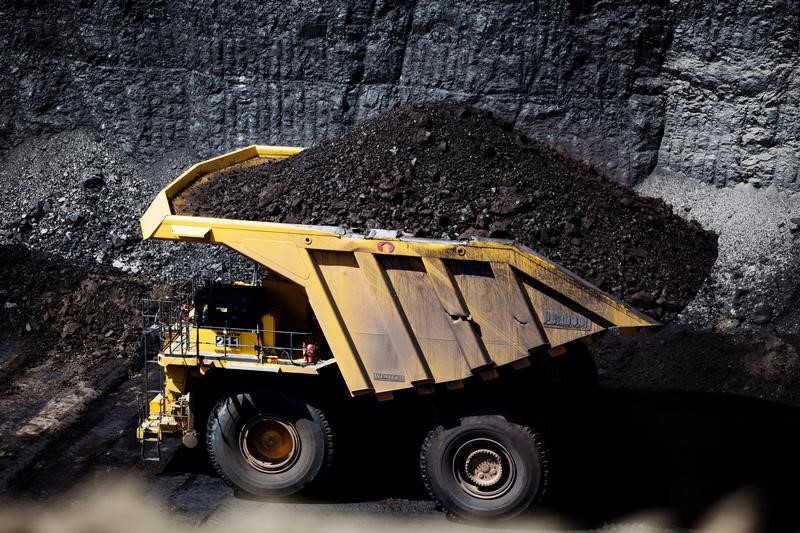By Jim Regan (Australia) and Aaron Sheldrick
SYDNEY/TOKYO, June 1 (Reuters) - Talks between Australian miners and Japanese steelmakers over coking coal supplies have stalled as the Japanese companies are pushing to move to more flexible arrangements from the current quarterly fixed-price terms.
The Japanese are backed by BHP BLT.L BHP.AX , the world's biggest producer of coking coal, a key steelmaking ingredient. However, other miners are against upending the 45-year-old fixed price settlement mechanism. Any changes could potentially further roil a market hit by wild swings recently.
Coking coal supply contracts between Australian miners and Japanese steelmakers are accepted as the benchmark around the world.
Pricing could instead be set by using the monthly average of a daily spot price, said three sources close to the negotiations.
While none of the companies involved has publicly stated the precise changes being sought, several industry sources said that Japan's steelmakers are pushing for change.
"The days of the benchmark system as we know it are dead," said a source close to the negotiations.
Should the changes be agreed, coking coal prices would be more closely aligned to that for iron ore, the other main steel making ingredient.
When supplies are short, as recently after a cyclone hit supply chains in Australia, miners would get a windfall.
But miners would also be hit by low prices when supplies are plentiful and demand is weak, while the reverse would apply for steel mills.
Japanese steelmakers led by Nippon Steel and Sumitomo Metal Corp 5401.T have long resisted the idea of more flexible pricing, preferring the stability of supply under term contracts. But that is changing.
"They want index-linked or fluctuating pricing," said a source at one of the miners. "They are tired of quarterly discussions and want more third-party assessments."
Meanwhile, another source with ties to the miners said talks were close to setting a benchmark price of around $195 a tonne as early as Friday that would apply retroactively for the second quarter of 2017. The price roughly equates to the average coking coal price during March to May.
BHP is aligned with the Japanese steelmakers, with Chief Commercial Officer Arnoud Balhuizen telling reporters in Melbourne on Thursday: "We are not participating in quarterly benchmarks."
"Our conversations with our customers are very constructive," Balhuizen said. "We understand, probably triggered by the recent volatility in the market, people are more and more open to not fixing prices on a quarterly basis."
Other miners led by Glencore (LON:GLEN) and Peabody are resisting the moves since they sell coal with a lower heat content that could be priced at a discount to a spot market price, sources said.
Prices for Australian premium coking coal surged to as high as $314 a tonne earlier this year after Cyclone Debbie hit Queensland. They were quoted by S&P Global Platts at $149.20 per tonne on Wednesday.
The cyclone knocked out supply chains and forced a hiatus in talks on coking coal prices that would normally be wound up by March or April. The storm also forced Japanese steelmakers to scramble for alternative supplies. Cyclone disrupts coal market IMG
http://tmsnrt.rs/2nvcZK0 GRAPHIC: Japan's coking coal imports
http://tmsnrt.rs/2pJDErt
^^^^^^^^^^^^^^^^^^^^^^^^^^^^^^^^^^^^^^^^^^^^^^^^^^^^^^^^^^^>
